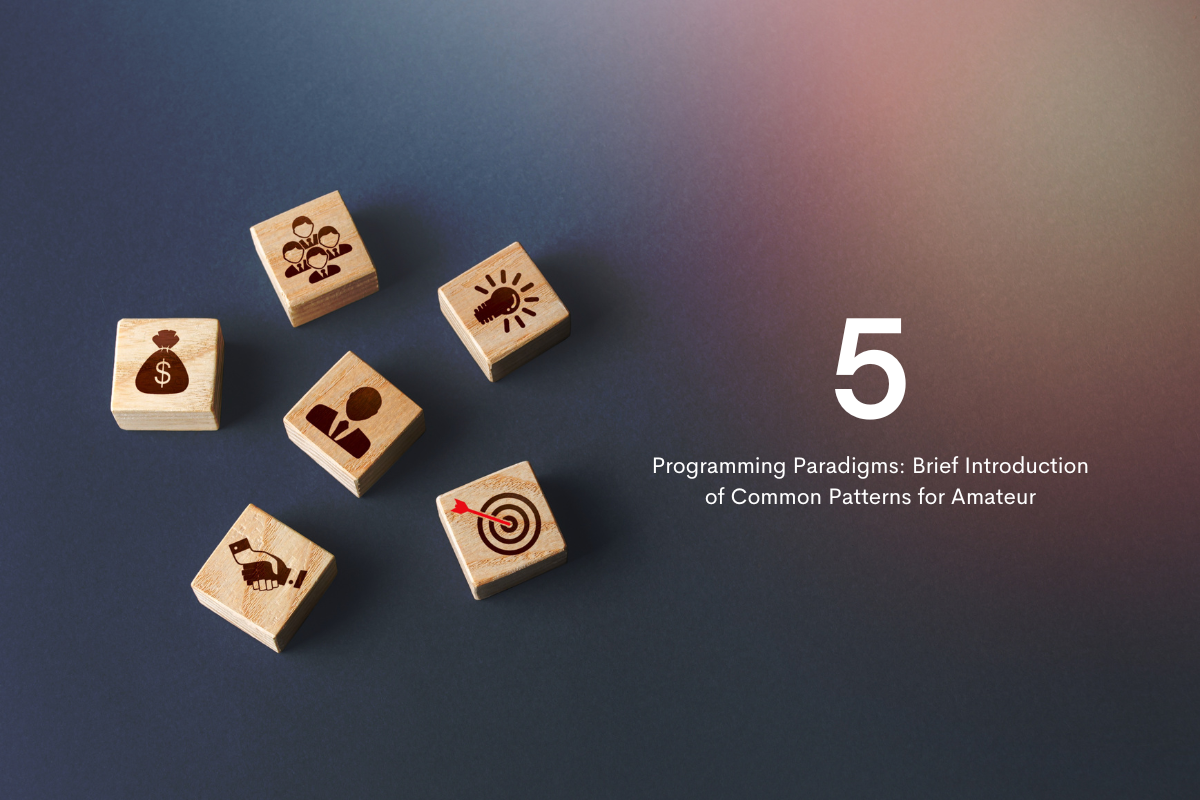If you are a computer science student, you must have come across the term “programming paradigms”. But have you ever wondered what this means? If yes, then you will be aware of its types and uses. It might have led you towards seeking help with programming assignment help. However, if you are new in this field, no worries! This write-up will help. Before moving to the types, have a look at the meaning of programming paradigms:
What Are Programming Paradigms?
Paradigms are the methods to solve some problem. Programming paradigms are approaches to solving problems using programming language or tools and techniques. In other words, paradigms are different styles or ways a program can be organized. Every paradigm has features, structure, opinion, and more to handle common programming paradigms.
On the contrary, paradigms are not languages. You cannot build or create anything by using these. They are the set of ideas and guidelines that can follow. Programming languages are not tied to a particular paradigm. Instead, they are building with some paradigm.
Popular Paradigms
Although there are various types of programming paradigms, in this article, the most popular ones are discussed. Have a look at the listed below paradigms:
Imperative Programming Paradigms
It is one of the crucial and oldest programming paradigms. It contains sets of detailed instructions given to the computer to execute a particular order. It is imperative because programmers dictate what a computer should do in a way. The programs in these paradigms can execute step by step with the change in the current state of the program. It aims at how to operate a program.
Pros
- It contains variables, loops, and more.
- It is simple to implement.
Cons
- It is less productive and efficient.
- It has a complex problem to solve
- In this, parallel programming is impossible
Functional Programming Paradigms
The functional paradigm is connected with the roots of mathematics and is language-independent. In this programming, a program is developed with the use of functions. Instead of a series of statements, this uses a program to map and change a particular value to another. The main principle of this is to execute the series of mathematical functions. Data are coupled to programs loosely and hide their implementation.
Pros
- It has optimum transparency.
- It can enhance readability.
Cons
- It has a problem with terminology.
- The difficulty in stateful programming.
Object-Oriented Programming Paradigms
It is one of the most prominent programming paradigms. It is built upon the core concept of separating concerns into entities coded as the object. In this, the program is written as a collection of objects and classes for communicating. The smallest entity is referred to as an object, and all computations are performed on this only. It emphasizes more data than process. It handles most real-life problems in the present scenario.
Pros
- Code re-usability
- Inheritance
- Flexibility
- Data security
- Abstraction
Procedural Programming Paradigms
Procedural programming is derived, from imperative programming That adds to its feature of functions. It can reuse the code. In this programming, the user is encouraged and subdivides the execution of the program into functions in a way to improves organization and modularity. Simplification and abstraction are the benefits of procedural programming.
Pros
- Good for general-purpose programming
- The source code is portable.
- Program flow is easy to track.
Cons
- Program code is difficult to write.
- The entire program exposes data.
Declarative Programming Paradigms
These are those paradigms in which the programmer describes the result property with aiming to achieve it. In computer science, it is a building style of the program that expresses the logic of computing without its control flow. It is further divided into Functional, Logic, and Database. It is also considered a theory of logic. It focuses on what to do something rather than how to do it.
Pros
- It has short and efficient codes
- It is easy to optimize
- Maintenance is independent of app development
Cons
- It is hard to understand sometimes
- It is based on unfamiliar concepts
Languages And Paradigms They Support
In addition to the meaning and the types of programming paradigms, this article also makes you aware of which languages will support which paradigm. Consider some languages mentioned below:
Python
The procedure, Object Oriented, and Functional programming paradigms.
C++
Structured-oriented, Procedural, Object-oriented, and Monolithic programming paradigms.
C#
Declarative, Functional, Generic, Object-oriented, Imperative, and Prototypal programming paradigms.
Java
Object-oriented and procedural programming paradigms.
JavaScript
Object-oriented, procedural, functional, and prototypal programming paradigm
PHP
Procedural, object-oriented, and functional programming paradigms.
Conclusion
So, this was a brief about the programming paradigms. Now you must be aware of the meaning or the definition of the same. Along with this, you have an idea about the different types of paradigms and the languages that support them. Even after this, if you have some issues, do not hesitate to seek help with programming assignments from the experts available. These professionals will guide you in the right direction and will make your work easier.






Comments